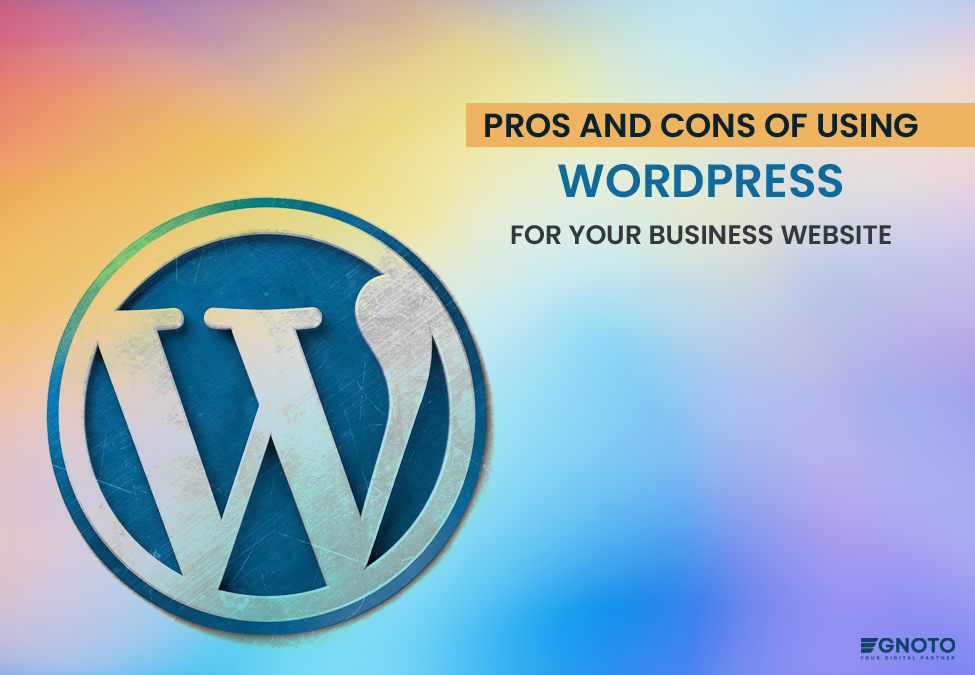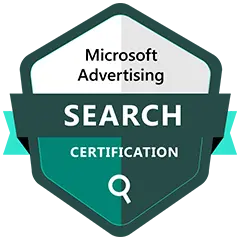WordPress is a go-to choice whether you want to build an eCommerce site or need a blogging platform. Around 43% of sites are powered by this open-source platform. But are you sure this CMS is suitable for developing your business website? Let’s find out.
Several businesses use WordPress website builder for effective online presence. It offers various benefits but also has some limitations. This blog will help you understand whether to choose WordPress for your next website-building project.
Get a deep dive into the pros and cons of WordPress and make a confident decision about your online presence.
What Is WordPress?
WordPress has been a popular website-building tool since its launch in 2003, even before Facebook was introduced. It is an open-source website development platform and is also popularly known as a Content Management System. The platform offers 59,000 free plugins and 5,200 paid plugins to allow great flexibility to website builders. Using this free platform, website builders can easily customize their websites.
You don’t need to learn coding to use this platform, as it has a plugin for every task.
Key Features of WordPress:
- User-friendly: Simple and intuitive features help you build a tailored site according to your requirements.
- Flexible: WordPress can be used to build any type of website, including blogs, eCommerce, travel, manufacturing, education, and others. It offers great flexibility to website designers.
- Social media integration: WordPress allows seamless integration of social media channels like Facebook, Instagram, Twitter, YouTube, etc.
- An ample number of themes and Plugins: Themes and plugins are WordPress’s game-changer features, allowing you to quickly customize your site without writing a single line of code.
- SEO-friendly: WordPress provides simple codes that help Google bot index your site quickly.
Pros of Using WordPress for Building a Business Website
Building a business website requires an intuitive platform. WordPress can be an effective choice if you are looking for an easy and cost-effective website development platform. Have a look at all the key advantages of choosing WordPress for your business website.
- Easy to Us:
WordPress powers 43.6% of websites online because it’s easy to handle. Whether you are a beginner or an experienced developer, this platform is easy to use for all. Even with little technical knowledge, choosing WordPress will be beneficial, as the tool has intuitive features and built-in components. You will not have to get into the complexities of coding to develop a website.
Its intuitive interface allows for easy and quick content management.
The image below shows that 85% of all WordPress-powered websites (w3Tech) use version 6.
- Affordable:
Affordability matters a lot when you want to build a website. It determines the quality of the site. What if you get beautiful themes and plugins for free? You can build an exquisite website at a low price. WordPress offers around 60,000 plugins and 12,000 free themes. You can choose any theme and plugin that fits your needs and customize your website.
Additionally, the platform is open-source and free to use, so you can avoid hefty upfront costs. Many hosting providers also offer a budget-friendly plan for WordPress. Likewise, the platform’s user-friendly interface eliminates the need to hire experienced developers to design and develop a website.
- Flexible:
From blogs to eCommerce websites, you can build any type of website using WordPress.
Whether you want to build a one-page or large website, the tool provides built-in plugins for all your needs. The platform also offers tools and frameworks for creating responsive designs. It provides easy editing and customization options so you can easily implement changes to the site.
Thousands of plugins in the platform help you build designs that suit your unique needs. You can implement new features on your site anytime without writing any codes. Often, e-commerce businesses introduce new sections and categories on their website.
- SEO-friendly:
Building a beautiful website is a must, but ranking it in Google SERPs is equally important. Improved website visibility enhances reach and engagement. WordPress helps boost SEO and website presence. When you include SEO codes, new visitors can find your website easily.
Here are some WordPress Tools:
- Auto-generated XML site maps
- Custom titles and descriptions
- Clean URLs
- Site Verification
- Responsive:
Users can access your website through any device, such as a desktop, laptop, Mac, or mobile device. A responsive website provides a seamless experience across various devices. Thousands of WordPress are available in the WordPress.org theme repository, but not all themes are responsive.
You will have to find responsive themes for your website. These themes should be mobile responsive and cross-browser compatible. Responsiveness is crucial for any business website; hence, carefully select your website’s theme.
- Scalable:
WordPress is a scalable platform. It accommodates the growth of a website regardless of how large it is. You can build a small blog or a large eCommerce website with thousands of products using this open-source platform. If your business expands, no worries; WordPress will provide features to add new pages, posts, and designs.
Moreover, WordPress allows easy integration with many hosting providers. These providers often provide resources to manage increasing traffic on your website. WordPress offers two types of scaling.
- Horizontal Scaling
- Vertical Scaling
- Provides eCommerce Capabilities:
You know WordPress is a popular Content Management System. It is versatile enough to build online stores, providing great flexibility to add, remove, and edit thousands of products. WordPress provides a plugin named WooCommerce to create online stores. It powers 4 million sites online.
WooCommerce is the most flexible and customizable eCommerce plugin. It allows you to build a new store from scratch or move an existing store to this plugin. Have a look at its eCommerce features.
- Allows to sell everything
- Add on extensions
- Customize your store
- Own your store and data
- Easy to Integrate:
WordPress supports integration with various tools, such as email marketing, social media, and analytics. Suppose, you want to connect with the email marketing tool Mailchimp to attract more leads. Integration of Google Analytics will provide insights into user behavior and so on. You can achieve a wide range of benefits with WordPress integration.
You don’t have to juggle between various tools to manage business processes when you can access everything from one platform.
Cons of Using WordPress for Building a Business Website
Is everything positive about WordPress? No. There are some limitations in WordPress. Since you are building a business website, you must know what you can’t get from this platform.
- Security Issues:
If your website is built on WordPress, hackers can easily access it. Therefore, you will have to handle its security yourself. WordPress’s outdated software components make it vulnerable to hackers. To protect your website, install plugins and manage your hosting wisely.
- Too Many Options:
As you know, WordPress offers thousands of plugins, themes, and various features. These options often overwhelm users and make it challenging to find the best theme. After selecting a theme and plugin, you always think about choosing others. This feeling is dangerous as it doesn’t let you focus. So, this advantage is also a disadvantage.
- Plugin Dependence:
WordPress has plugins for every stage of website development. So, you often end up wasting time finding the right plugins. Moreover, too much dependency on plugins slows down the site. If you choose low-quality plugins, the situation can worsen even further.
- Performance Issues:
If your business website is optimized carefully, users have positive experiences. Plugins for everything often increase load time and slow down the site’s performance. Plugin and theme incompatibilities create performance issues because they can have conflicting codes. It can lead to a requirement for an expert to build the website.
- Customization Limitations:
Although WordPress provides thousands of plugins and themes, customization is limited because you have to rely on themes. You can’t create a unique design for your website apart from themes provided by WordPress. Moreover, the restricted customization options don’t let you customize fully. To do this, you must change the source code by building logic.
- Content Management Complexity:
Do you have a large website powered by WordPress? Managing numerous posts and pages can become cumbersome. The website’s interface is often not intuitive, leading to navigation problems. You might face issues while managing content on the website.
- Frequent Updates:
WordPress often releases new updates to its software, themes, and plugins. Keeping up with these updates can be difficult without an expert’s advice, causing chaos on your site and ruining customer experience. Once you have selected your theme, plugin, and WordPress version, stick to it until an update is essential.
- Regular Maintenance:
WordPress updates can be time-consuming for your business website. They often require expert advice to avoid disruptions in the consistent user experience. Things can get buggy if you do it yourself without technical knowledge and expertise. Set your website to maintenance mode before making any changes.
Wrapping Up
WordPress can be an effective tool for your business website if you choose themes and plugins carefully and ensure website security yourself. There are many other things to consider when building a WordPress website. You can make better decisions if you know the pros and cons of using WordPress. It will save you from wasting time and money on less important tasks. You can also analyze whether you need an expert to build a WordPress site or you can build it yourself. Moreover, knowing the pros and cons of WordPress will help you concentrate on areas that can affect your site positively and negatively.










